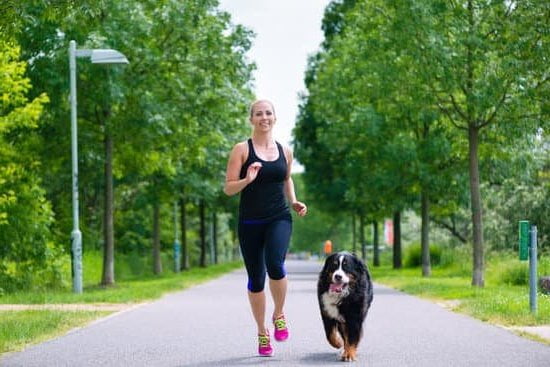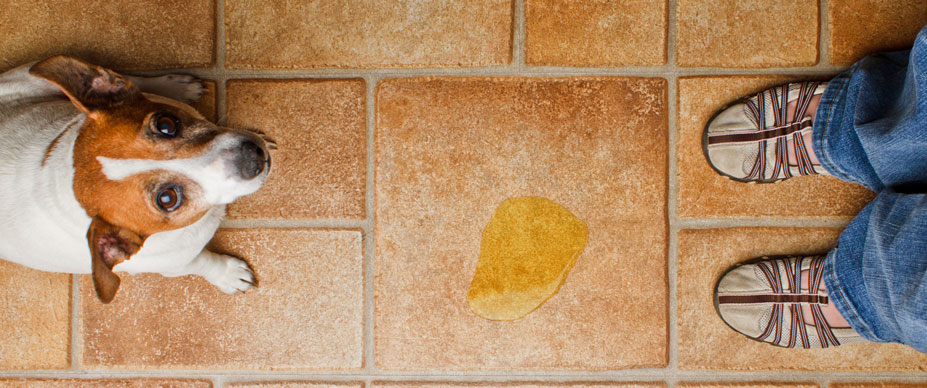Table Of Content

Expecting your puppy to wait too long for a bathroom break will lead to an accident. For instance, if your pet has been indoors all day, instead of playing with them when you first come home, immediately let them out in the yard or start the walk. Once they have urinated and defecated, give your dog praise and/or a treat to reinforce the purpose of being outside. If your pet is starting to show signs of mild dementia or cognitive dysfunction, schedule a checkup with your veterinarian.
Join our pup pack!

Feeling anxious over a change in the family or the environment, such as a big move or a divorce, can trigger inappropriate elimination. Although owners of older dogs often blame a puddle problem on their dogs’ age, the years alone often aren’t the sole reason. There’s usually an underlying issue, such as dementia or cognitive dysfunction syndrome, which explains why a senior dog forgets where to pee. For separation anxiety, dogs have to be retrained over time to see being left alone for certain periods as a positive thing. Ask your vet about professional trainers or vet behaviorists that can help with your pet’s specific issue. We’ll explain some of the most common reasons potty-trained dogs may have accidents and provide some helpful solutions below.
Cognitive Issues
As dogs age or develop medical issues, they can experience canine incontinence. While this issue is perhaps more common in aging dogs than in young ones, it could also explain why your puppy keeps having potty accidents in the house. The time it takes to train a dog to stop peeing in the house can vary depending on the dog’s age, breed, temperament, and previous training. With consistent training, positive reinforcement, and patience, most dogs can be successfully potty trained within a few weeks to a few months.
Reasons Why Your Dog Is Suddenly Peeing in the House

Sign up for product updates, offers, and learn more about The Wildest, and other Mars Petcare brands. See our privacy statement to find out how we collect and use your data, to contact us with privacy questions or to exercise your personal data rights. “You don’t need to have a bowl of water out for your dog all day long,” Weiss says. For a list of all the supplies we get for our new service dog puppies check out our New Puppy Checklist on the PuppyInTraining.com blog.
There are medications and special diets for senior pets to help them navigate this new stage in their life. Food allergies or food intolerance may also cause gastrointestinal upset in dogs. One of the proudest moments of being a dog parent is the joy you feel when you’ve successfully potty-trained your new puppy.
Your Dog Should Do This 30-Day Training Challengeopens in a new tab
In these scenarios, your dog is typically just trying to establish that the house is their territory. However, urine marking is more common in young, intact dogs—especially male dogs. In young, healthy dogs, bad weather is a common reason to have a urinary accident in the house. From a simple rain shower to a severe thunderstorm or snowstorm, it may be enough for your dog to be reluctant to go potty outside. You may need to take him on more frequent walks or let him outside more often, or confine him to a small area lined with training pads when you can't be there to let him out.
When Should I Take My Dog To The Vet For Peeing In The House?
Why Your Pet Having Random 'Accidents' Could Be a Sign of a Serious Issue - Newsweek
Why Your Pet Having Random 'Accidents' Could Be a Sign of a Serious Issue.
Posted: Sat, 04 Jun 2022 07:00:00 GMT [source]
If your potty-trained dog is peeing and pooping inside the house due to stress or anxiety, it’s vital that you try to minimize those triggers as much as possible. You should learn your pup’s behavior and understand what exactly is triggering them so that you know what triggers to avoid and what you should work on with your pooch. Desensitization and counterconditioning can be of help in certain instances. But if you tackle those issues early on with proper veterinary care, they can be treated or managed so that your pup can continue on enjoying their best, most fulfilled life.
What matters most is removing the odor that acts like a neon sign flashing the words “pee here! ” Household cleaners may smell fresh and clean to humans — but not to dogs. Many contain ammonia, and ammonia gives off an odor that attracts dogs as if it were urine. Use an enzymatic cleaner designed to chemically neutralize the urine instead.
Owners often report that their older spayed females will sometimes unexpectedly leak urine while asleep. This situation is caused by dogs’ lower estrogen levels as they age, which weakens their urethral muscles. That’s why incontinence often begins when dogs reach middle age and their bladder weakens. These could be one-off behavioral incidents, but they can also be a sign of urinary incontinence, something that becomes more prevalent as dogs age. It is important to schedule an appointment with your veterinarian to find any possible medical conditions. Some dogs may defecate in the house because they did not spend enough time outside to go to the bathroom.
Until your puppy learns to fully empty their bladder during each trip outside, you can use absorbent solutions to limit the mess. If you aren’t sure your new dog will mark when you bring them home, keep them on leash and supervised at first. That way, if you see any signs of wanting to mark, you can quickly move the dog outside. If you need to leave your dog at home unsupervised, make sure they're crated or in an enclosed place where you know they won’t mark. If the dog has a history of marking, continue this practice when you get new furniture or other upright items in your home to prevent marking from happening again.
A sensitive dog may be too frightened to ever eliminate in front of a person. Sign up for weekly pet health tips and insights from our veterinarians. Urinating outside the litter box is a common problem among cats and is one of the main reasons cats are surrendered to shelters and even euthanized. There are so many different causes for the behavior, many of which are relatively simple to fix. Just make sure that you’re feeding your dog the right amount of food according to their size and age.
Hallmarks of cognitive decline include disorientation and a loss of previously learned behaviors. Some dogs are not able to find their way to the door, while others forget to signal their need to eliminate. Dogs may go outdoors and forget to eliminate, only to eliminate shortly after they re-enter the house. You may be able to create a safe, comfortable, easily cleaned confinement area with piddle pads or washable matting. Since marking can reflect underlying social tension, especially between two household dogs, it is important to consider your dog’s behavior during social interactions.
However, it could also be behavioral, such as a response to a change of environment or anxiety. To combat this, you will need to do what you can to solve the underlying issue and commit to re-house train your dog. The reasons why your dog might suddenly start peeing in the house extend from the mundane, such as having had a bit too much (water) to drink, to the serious, such as diabetes. Identifying which cause is at play in your home will require looking at what else is happening with your pup. There are a variety of reasons why a dog might suddenly exhibit this change in behavior, and solving the problem generally starts with identifying the cause. A healthy adult dog can usually hold urine for about 3–4 hours if they are not active.
When he does the right thing and relieves himself outside, you should use high-yield rewards, like food and plenty of praise. The lingering smell of urine in a certain part of your home can be a signal to your dog that this is an appropriate place to pee; after all, they have clearly peed there before. This is why any inappropriate urination needs to be cleaned up thoroughly and all scents banished. You can usually tell if this is the case if they are only peeing a little, as when marking, dogs will often expel just enough pee to make a scent, rather than emptying their bladder. You may also find that they are peeing on vertical objects, rather than just the ground, as this is a common feature of marking.
One of the most common reasons why a dog may pee in the house is due to a lack of proper training. Puppies, in particular, may not yet have the bladder control to hold their urine for extended periods of time. It’s important to establish a routine for potty breaks and consistently reward your dog for going outside. If your dog is older and suddenly starts peeing in the house, it could be a sign of a medical issue such as a urinary tract infection or bladder stones.

No comments:
Post a Comment